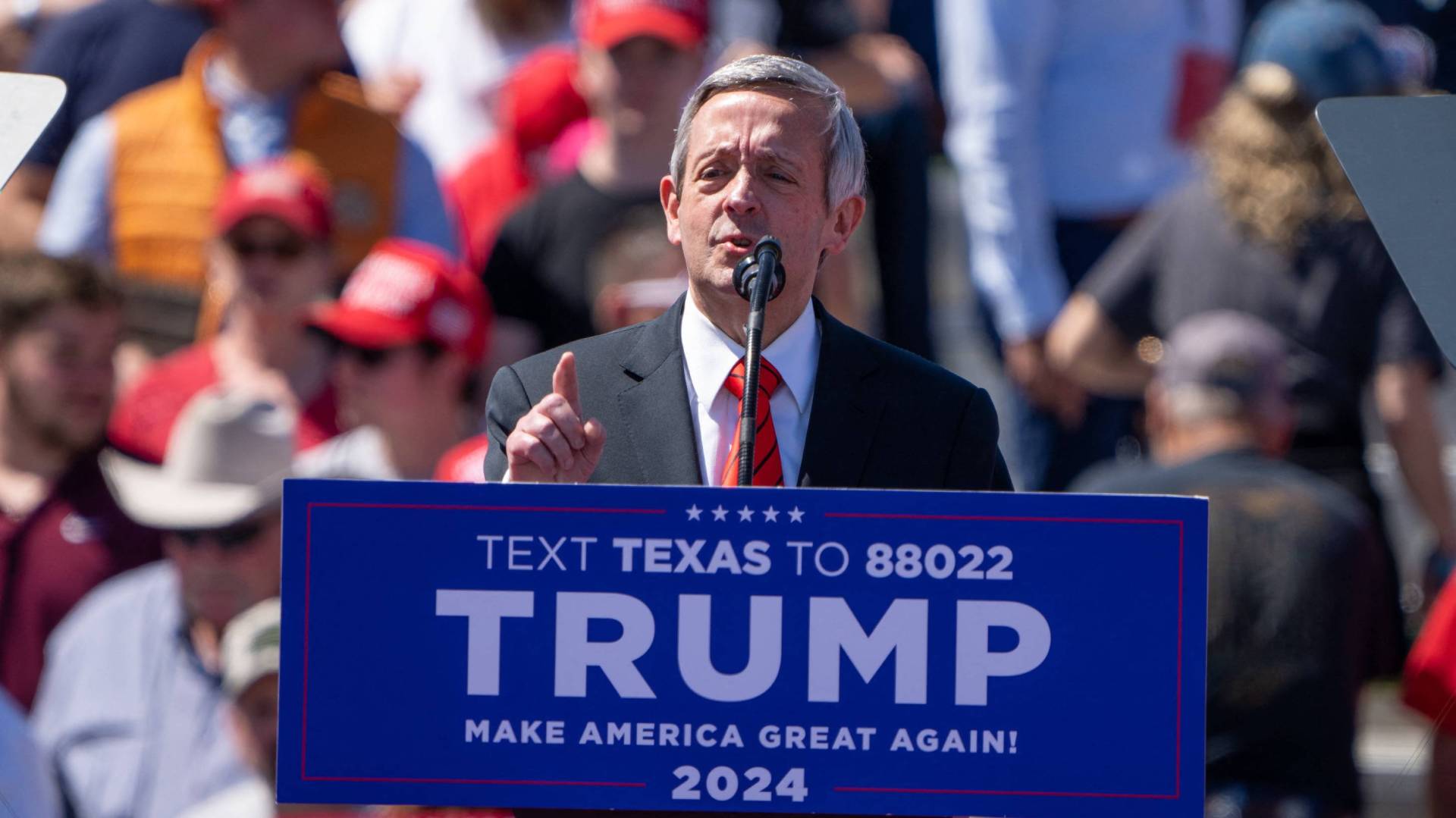Like other Americans, pastors are deciding who they’ll vote for in the November election. Compared to previous elections, however, they’re much more hesitant to share their preference.
Almost all US Protestant pastors (97%) plan to vote in the 2024 presidential election, according to a Lifeway Research study conducted August 8–September 3, 2024. But almost a quarter (23%) refused to answer the question of whom they’ll cast their ballot for. Few felt the same hesitancy in 2020 (4%) or 2016 (3%).
Still, among those who plan to vote and shared their preference, 50 percent say former president Donald Trump is their choice, while a quarter (24%) back Vice President Kamala Harris and 23 percent are undecided. No third-party candidate garnered more than 1 percent support.
“We ask pastors about many things going on in the culture today, and they are willing to provide their opinion. However, the growing number of pastors unwilling to respond with their voting intentions shows how sensitive or divisive politics has become in some churches,” said Scott McConnell, executive director of Lifeway Research.
The 2024 voting preferences are similar to those during the leadup to the 2020 election, when 53 percent of US Protestant pastors said they planned to vote for Trump, 21 percent for Joe Biden, and 22 percent were undecided. In 2016, 40 percent of pastors were still undecided in September, while 32 percent supported Trump, and 19 percent planned to vote for Hillary Clinton.
Currently, pastors are less likely to be solidly supportive of either major party candidate than their congregants, according to a Pew Research study. Around 3 in 5 US Protestants (61%) say they would vote for or lean toward voting for Trump if the election were held today, while 37 percent would choose Harris.
Self-identified evangelical pastors are more likely to vote for Trump (61%), while half of mainline Protestant pastors (50%) say they support Harris. African American pastors are among the most likely to say they plan to vote for Harris (71%) and among the least likely to back Trump (5%). Pastors under 45 are among the least likely to support Trump (41%).
Denominationally, Pentecostal (65%), Baptist (64%), non-denominational (64%), Restorationist movement (55%) and Lutheran pastors (48%) are among the most likely to plan to cast their ballot for Trump, while Methodist (52%) and Presbyterian/Reformed pastors (44%) are among the most likely to choose Harris.
Half of US Protestant pastors (50%) say they are either a registered member or consider themselves to be a part of the Republican party. One in 5 (18%) are Democrats, and 25 percent say they’re independent.
Evangelical pastors are more likely than mainline pastors to be Republicans (64 percent v. 30%), while mainline are more likely to be Democrats (35 percent v. 8%). Specifically, Baptist (67%), Pentecostal (67%), nondenominational (67%) and Restorationist movement pastors (57%) are among the most likely to identify as Republican. Methodist (36%), Presbyterian/Reformed (36%) and Lutheran pastors (25%) are among the most likely to say they’re Democrats.
Among Republican pastors, 78 percent support Trump. Among Democratic pastors, 85 percent back Harris.
“Out of all the descriptors of pastors, their own political party preference is the best predictor of how they will vote,” said McConnell. “Denominational groups often lean one way politically, but pastors must minister alongside many clergy who don’t share their political views. The same is true within their own congregations. In a culture that increasingly doesn’t want to tolerate people with different political views, pastors lead churches that strive for unity centered on their faith.”
From a list of 11 characteristics, a majority of pastors say 10 are important in deciding how to cast their vote. Around 4 in 5 say they are looking for a candidate with the ability to maintain national security (85%), the ability to protect religious freedom (84%), the position on foreign policy (83%), the ability to improve the economy (83%), the position on immigration (81%), the position on abortion (80%) and personal character (79%).
Three in 4 (75%) say likely Supreme Court nominees are important. Around 7 in 10 are looking for the ability to address racial injustice (71%) and the position on the size and role of government (70%). Fewer (38%) say the ability to address climate change is an important factor in how they vote.
When forced to choose the most important factor, 24 percent say personal character, 18 percent say the candidate’s position on abortion, 16 percent say the ability to protect religious freedom and 12 percent say the ability to improve the economy. Every other issue is the top priority of 4 percent or fewer pastors.
“Pastors are not single-issue voters. They care deeply about where presidential candidates stand on many issues,” said McConnell. “There are moral dimensions to all of the characteristics that could be selected, and pastors did not all pick the same characteristic as most important.”
Pastors voting for Trump are among the most likely to say an important issue in their voting decision is the ability to protect religious freedom (96%), the ability to maintain national security (95%), the ability to improve the economy (94%), the position on abortion (93%), the position on immigration (92%) and the size and role of government (89%).
Those voting for Harris are among the most likely to say they’re looking for a candidate with personal character (96%), the ability to address racial injustice (92%) and the ability to address climate change (91%).
Evangelical pastors are more likely than their mainline counterparts to say their primary vote-determining issue is the candidate’s position on abortion (22% vs. 12%). Mainline pastors are more likely than evangelical ones to say their top issue is the personal character of the candidate (35% vs. 17%).
Pastors planning on voting for Trump are the most likely to place as their top priority the candidate’s position on abortion (29%) and ability to protect religious freedom (25%). Those supporting Harris say their most important issue is personal character (58%).













